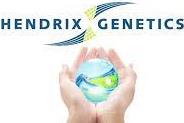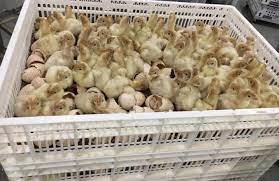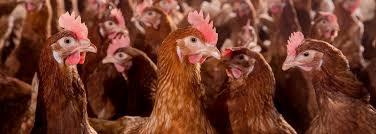Hendrix-Genetics Executive Comments on Economic Sustainability
|
08/06/2021 |
|
 In a July 30th article, Marcel Huijsmans, Director of Communications for Hendrix-Genetics identified three areas to achieve economic sustainability in poultry production. He considers that placing parent and commercial and generation flocks with genetic characteristics appropriate to market needs as being critical to achieving financial return and optimizing use of resources. He emphasizes that selection of strains should be based on climatic challenges citing the ongoing Sustainable Access to Poultry Parent Stock for Africa as an example. In a July 30th article, Marcel Huijsmans, Director of Communications for Hendrix-Genetics identified three areas to achieve economic sustainability in poultry production. He considers that placing parent and commercial and generation flocks with genetic characteristics appropriate to market needs as being critical to achieving financial return and optimizing use of resources. He emphasizes that selection of strains should be based on climatic challenges citing the ongoing Sustainable Access to Poultry Parent Stock for Africa as an example.

Biosecurity is considered to be the second factor to deliver optimal results. Primary breeders have eliminated vertically transmitted disease and commercial operators should implement appropriate structural and operational biosecurity to maintain the health of flocks. Hendrix-Genetics has achieved World Organization for Animal Health Compartment Status for grandparent farms and hatcheries both in their home base in the Netherlands and in their breeding operation in Brazil.
Huijsmans notes that innovations should improve both efficiency and sustainability. Gene deletion may be applied in the future but it is evident that public and government concern over GMO technology will limit commercial adoption. It is emphasized that no primary breeder including Hendrix-Genetics has ever applied any form of genetic modification in breeding programs. Improvements in genotype are based on programs applying index selection although molecular assays are universally applied to identify families with superior characteristics.
|
 |
Enhanced efficiency through a combination of improved genetics, superior management, prevention of disease and optimal nutrition will contribute to sustainability. Phenotypic expression of superior production of egg and poultry meat relative to inputs, including ingredients, utilities and labor benefits both farmers and consumers. Optimizing genetic potential with other inputs makes available food at a competitive price that provides consumers with a nutritious product while allowing producers a return on investment in facilities and resources.
|

|
|
|